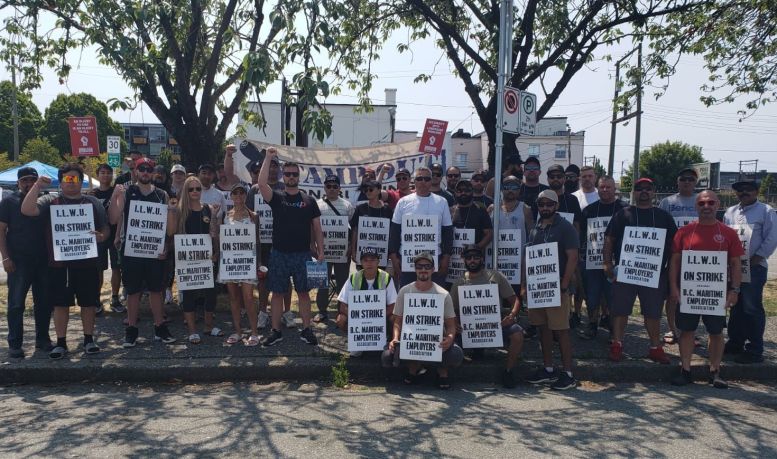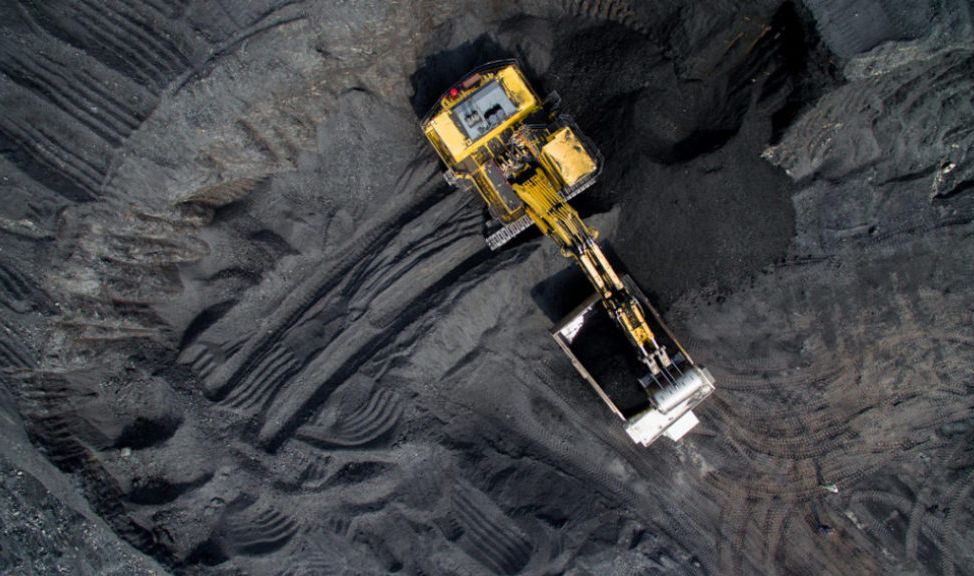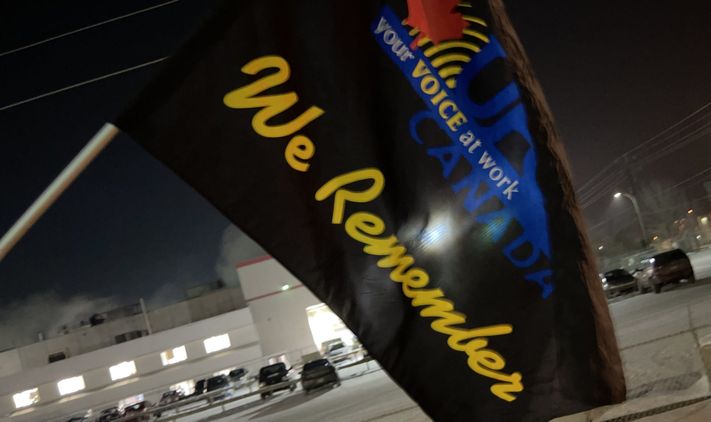Written by Socialist Alternative members in solidarity on the picket line.
Workers in Canada have the right to strike. But if a strike is effective, the bosses go bleating to the government demanding they impose back-to-work legislation. This is what is happening with the ILWU strike. The employers’ representatives have walked away from bargaining three times.
This is a vital struggle for all workers. International Longshore and Warehouse Union Canada (ILWU) is a strong, member-led union, with a long tradition of solidarity with other workers. They regularly attend workers’ picket lines. They helped win BC’s $15 minimum wage, benefiting 400,000 workers, although it did not directly boost ILWU members’ pay. Recently, they refused to cross the picket lines of Seaspan tugboat crews in Vancouver.
The union has enormous power. Around 16 percent of Canada’s traded goods passes through the ports — all handled by longshore workers. A victory for ILWU will boost other workers’ confidence to fight for wage increases in this time of inflation.
Background
The previous contract expired on March 30, and the employers represented by BC Maritime Employers Association (BCMEA) had not been negotiating seriously for months.
To up the pressure to negotiate, ILWU called a strike vote. The 7,400 members voted 99.24 percent in favour. At 8 am on Saturday, July 1, BC’s ports went quiet as ILWU members started their strike.
The strike vote provoked a flurry of negotiations, but then the BCMEA walked out — three times! Behind the BCMEA are the real employers, the 49 private companies that operate the port facilities and the shipping lines.
DP Canada, owned by Dubai-based DP World, operates ports in Prince Rupert, Vancouver, Surrey and Nanaimo. The head company reported a jump in before-tax profits to US$5 billion in 2022. DP World is notorious for sacking, probably illegally, all the 800 strong workforce of its P&O ferries that operate between France, Britain and Ireland in order to bring in lower-wage workers.
Neptune operates the bulk export of coal and potash. It is owned by Capotex, the world’s largest exporter of potash, and Teck, a major mining corporation with profits of $6.6 billion in 2022.
During COVID, longshore worked ceaselessly to keep society moving. Especially in the early months, it was scary going to work as it was difficult, if not impossible, to keep a safe physical distance. Several workers did get COVID, taking it home. They were part of the “essential” workforce that kept society running in a time of emergency. They were heroes.
The working class kept society running at risk to their own and their families’ health. The business owners stayed safe and raked in profits. Workers expressed anger at the profits companies were making off the backs of workers — “gouging,” one said. The rich are getting richer while young workers, especially, “can barely afford a place to live.” Now the employers are refusing the workers their due recognition.
Negotiate, Not Scare-Monger
There are three key issues: wages, contracting out of work and the threat of automation to jobs.
By July 3 the BCMEA issued a statement saying that a “continuation of bargaining at this time is not going to produce a collective agreement.” Rather than negotiate, the employers and their friends in big business are urging the federal government to legislate ILWU back to work. This drumbeat of big business is growing louder.
The employers and big business are complaining that the strike is harming the economy, pretending to care about jobs. There is a simple remedy — stop stalling and negotiate in good faith with the union to reach a settlement that reflects the genuine issues of ILWU.
Big business claims that ships will be diverted from BC ports to other ports. This is scaremongering. Supply chains at all ports remain stretched — a ship can’t just turn up. The costs and logistics of re-routing goods through other ports and then onto trucks or trains are enormous. In addition, ILWU on the west coast of the US and the International Longshoremen’s Association on the east coast of the US and Canada have stated they will not handle diverted ships.
The union has come out strongly against government interference, warning that if the federal government imposes a contract, “there will never be labour peace on the waterfront.”
The use of back-to-work legislation undermines unions’ democratic rights and is a blatant demonstration that government is on the side of the bosses. Governments never force employers to keep a workplace open or to protect jobs.
Issues: Wages and Jobs
The last 5-year contract increased pay by 10 percent over its last three years, which was below the exploding inflation of 15 percent and the workers, rightly, want to restore their standard of living. The employers, as is common practice, highlight the highest paid workers, but never mention their profits or the bosses’ income.
“The reality is, our people do hard work under difficult, often dangerous conditions, and they kept Canada’s economy moving through the worst of the pandemic,” said ILWU Canada President Rob Ashton. “That’s a long way from the picture the employer wants to paint. It can be a good living, but it takes years of sacrifice to get there, and it’s still hard work.” He said the income can be sporadic and inconsistent as many workers are dispatched on a day-to-day basis.
The job requires working shifts that are 7 days a week, 24 hours a day. There are only three days a year the ports do not operate. A worker died at Deltaport on December 14, 2022 and the company was found to have committed six safety violations, several going back over a year.
On the picket line, workers expressed concern about the increasing “contracting out” of jobs that ILWU members are skilled to do. This is not about saving money, but an attempt by the employers to weaken the union. This bypasses the union, takes jobs from those who are currently on the casual list and so makes it harder and longer for them to become full members with all the security and benefits.
Automation
Before the strike, the employers launched a propaganda offensive claiming that the Port of Vancouver was one of the least efficient container ports, trying to imply it was the workers’ fault. In fact, the causes were supply chain disruption and mismanagement. In 2022, Vancouver was still recovering from the devastating floods of November 2021. A key failure is the lack of space for containers. Trucking companies complained that they must store the empty containers at their cost, as the Port won’t take them back as it lacks storage space.
This claimed inefficiency is an excuse behind the plans to “kill jobs” and boost profits with automation. A report by Prism highlights the threat to jobs in container ports, but also the high cost and pitfalls of automation. If full automation goes ahead, nearly 10,000 direct and indirect jobs would disappear from BC ports. This would devastate Prince Rupert, hitting 18 percent of the city’s workforce and 35 percent of good paying jobs. A worker said, “we don’t want to be replaced by robots.”
Good paying jobs are already rare for young workers. Automation of BC’s ports would destroy the future for thousands of young people. Increasingly, capitalism, in its drive for profits, is destroying jobs.
The report also reveals many doubts about any claimed benefits for business, highlighting the many problems and weaknesses of automation. The union’s view is that workers should not pay with their livelihoods for increased flow of cargo.
Public Ownership and Democracy
Although longshore workers work for private companies, the vast majority of BC’s ports are owned by the federal government. This includes the 29 terminals in and around Vancouver, as well as ports in Nanaimo, Port Alberni and Prince Rupert.
Unfortunately, the ports are not run for the tens of thousands of workers who support the ports or for the communities living around them. Canadian Port Authorities are run like businesses, supporting employers.
As well as the port land, the ports should be publicly-owned and operated. Socialist Alternative advocates for workers’ control of the day-to-day running of the ports, involving all the skills and knowledge of the workforce. In addition, we would argue the overall direction should not come from over-paid directors who are friends of big business. Instead, we support democratic oversight of the entire publicly-owned port system. This would include boards with elected representatives of the union workers in the port and involved in using the port (rail, freight, etc.), the wider community around the port, and the federal government (to represent the interests of all Canadians — not the bosses).
This would be a radical break from the current pro big-business system and also be a much better approach than the current publicly-owned businesses (BC Ferries etc.), which are largely run like private corporations.
Federal Government
Ports are federally regulated, and the workers are covered by federal legislation. The federal government has a history of interfering in unions’ activities. In 2021, the Federal Liberals legislated 1,150 striking dock workers in Montréal, members of CUPE, back to work. This legislation is contrary to multiple Supreme Court rulings that back-to-work legislation is a violation of workers’ rights under the Charter. However, it takes years for the Supreme Court to make these rulings, long after disputes are over.
Back-to-work legislation would pose a major question to the ILWU. Do they accept it as happened in Montréal or do they defy it? In Ontario, when Doug Ford introduced back-to-work legislation against school workers, invoking the “notwithstanding” clause to block a court challenge, the unions came together in solidarity with the threat of a general strike and Ford backed down. In 2014, the truck drivers who move the containers in and out of the Port of Vancouver were on strike. The BC government and the Port issued many threats including back-to-work legislation but the drivers, about 1,200 owner-operators and 300 employed workers, said they would not bend to the threats. The day before the back-to-work legislation would become law, the employers came back to negotiate a much-improved deal.
The pressure for federal intervention is growing and the employers seem to be banking on it. Hopefully, behind the scenes, the BC Federation of Labour and the Canadian Labour Congress are discussing solid plans for solidarity action with the ILWU. This is not only a struggle of ILWU members — it is a struggle for the entire labour movement. ILWU has stood with many workers over the years. Now, ILWU may need the support of the labour movement.
Solidarity
Socialist Alternative members have been to the picket line every day. In conversation with workers, their determination is clear, saying about being on strike, “It is what it is — we have to stand up for our rights.” We are in solidarity with ILWU and echo their slogan, “An injury to one is an injury to all.”
Forward to victory!
Send messages of solidarity to Rob Ashton, President of ILWU Canada: [email protected]



